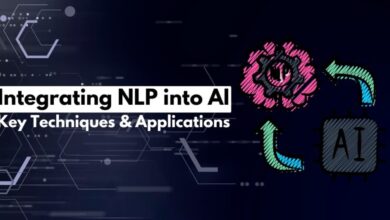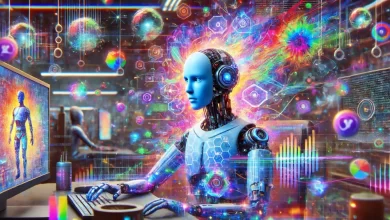Could AI Become Your Boss?

As artificial intelligence (AI) has grown, it raises many questions about job losses. What if it didn’t take over your role, but that of your boss? As strange as it may seem, some companies are already experimenting with AI managers.
How do AI bosses work?
In many ways, an AI boss functions similarly to a human leader. A machine learning model analyzes business performance, sets goals, monitors employees and suggests possible strategies or process improvements. Human executives retain the power for larger decisions, such as hiring and firing or authorizing transactions, but AI handles the details of middle management.
Managerial work includes many tasks in which AI typically outperforms humans, such as solving complex problems and reviewing documents. Some companies therefore consider it an ideal match for these roles.
They are already making use of the potential. Mobile app developer NetDragon Websoft appointed a robot CEO in 2022. The AI bot, called Tang Yu, provides real-time data analysis to inform strategic decisions, assess risks and streamline workflows. Other organizations, including rum brand Dictador, have also invested in AI leadership, testing the technology more often in smaller roles.
Benefits of AI bosses
This drive to automate management functions makes sense when you consider how repetitive and data-intensive much of the work is. AI managers have several advantages over conventional approaches to leadership.
Cost-effectiveness
The most obvious advantage of AI bosses is that they don’t need a salary. You normally see people talking about the cost-saving benefits of automation when it comes to basic, entry-level tasks, but when it comes to management, it has more impact.
Creating CEOs 399 times what typical workers earn average, and the gap has widened over time. From an economic perspective, it makes more sense to automate these high-paying positions than an entry-level position. Alternatively, companies could use AI to reduce the workload for management staff. This allowed managers to complete additional work in less time, resulting in a better cost-value ratio.
Rational decision making
An AI boss could also improve business strategy by removing emotional factors from key decisions. Machine learning determines the best path forward purely by analyzing data. As a result, companies don’t have to worry about clouded judgment, and employees don’t have to play the game of office politics.
Similar benefits apply to leadership as a whole. While you may hear people talk about “natural leaders,” studies show that no leadership style is the best in any scenario, and optimal supervision is really a matter of cognitive skills. Successful management analyzes the situation to find the ideal approach at that moment – the exact type of analysis at which AI excels.
Accurate forecasts
Likewise, AI tends to outperform humans when it comes to predicting future outcomes. Predictive analytics models can make accurate estimates based on past trends, while human experts struggle to do the same. That is a crucial advantage for a leader.
Bosses need to be able to see how things could turn out for a company in order to develop effective strategies. AI is good at this because it can spot subtle patterns in past data, but such detail-oriented work is usually slow and error-prone when humans do it.
24-hour availability
It’s also worth thinking about how a chatbot can answer employee questions at any time. All too often, human managers are too busy to talk to or help employees 7% of US workers say that there is open, accurate and timely communication in their workplace. AI can help because numerous users can talk to the same chatbot at the same time.
Chatbots are not only available 24 hours a day, but also provide instant responses. Moreover, they get their answers from the same data every time, which reduces the chance of errors or miscommunication. As a result, a robot manager could create a more collaborative and efficient team.
Disadvantages of AI bosses
Given these benefits, it’s no surprise that companies want to turn to AI bosses. However, there are still some major roadblocks in the way.
Relocation of jobs
As with any form of automation, AI management raises questions about job losses. The fear may not be as pronounced here as in other positions because there are fewer managers than other employees, but every job move has a negative impact on someone.
Automating higher-level positions can also eliminate promotion opportunities that seasoned employees would otherwise have. If a robot takes care of the management side of things, where can an experienced employee go to earn more from their experience? After all, this lack of mobility affects turnover the second most common reason behind people leaving their jobs.
Liability and prejudice
There is also the problem of bias. Although AI initially seems like a less biased solution, AI can exacerbate existing differences when it learns from biased data. It can also be difficult to spot AI biases before deploying the technology, so controlling a bot could lead to unfair treatment in the workplace.
Similarly, AI cannot take responsibility for mistakes the way a human leader can. Machine learning can be accurate in most cases, but can still hallucinate or get things wrong. If that does happen, who do you blame? How do you hold a machine accountable for poor results?
Security and privacy issues
AI bosses also introduce unique cybersecurity and privacy risks. Managing a team means dealing with a lot of sensitive information about employees, customers and the company. If one AI program gains access to all this data, a single breach could have serious consequences.
Cybercriminals can also target organizations through data poisoning attacks. By inserting malicious lines of code into the model’s training database, they could limit its accuracy or install a backdoor so they could control it. Such an attack would put control of the company in the hands of criminals or lead to malicious automated processes.
Will AI replace your boss?
In light of these pros and cons, AI bosses face an uncertain future. Over time, bots will become more and more accurate and humans will find solutions to issues of bias and cybersecurity. If they do, AI managers will become a viable option for a wider range of companies, but AI is unlikely to completely replace human managers.
As useful as AI can be in some areas of management, it lacks the creative thinking and nuance needed for other parts of the role. Consequently, collaboration between AI and humans may be the best way forward, and early results support that idea. AI models that work with human managers have achieved this a success rate of 72% in motivating employees – outperforming both AI and humans alone.
In the future, leadership within your company may become increasingly dependent on AI, but don’t expect to report exclusively to a robot. Some companies will likely appoint AI managers as NetDragon Websoft has done, but human leaders will still be present.
AI can assist managers, but it will not replace them anytime soon
As AI technology advances, it will play a greater role in business management. However, concerns about cybersecurity, workforce considerations, and liability – as well as AI’s inability to think creatively – are keeping AI from fully taking over. AI may not replace your boss, but it can help him do his job better.






